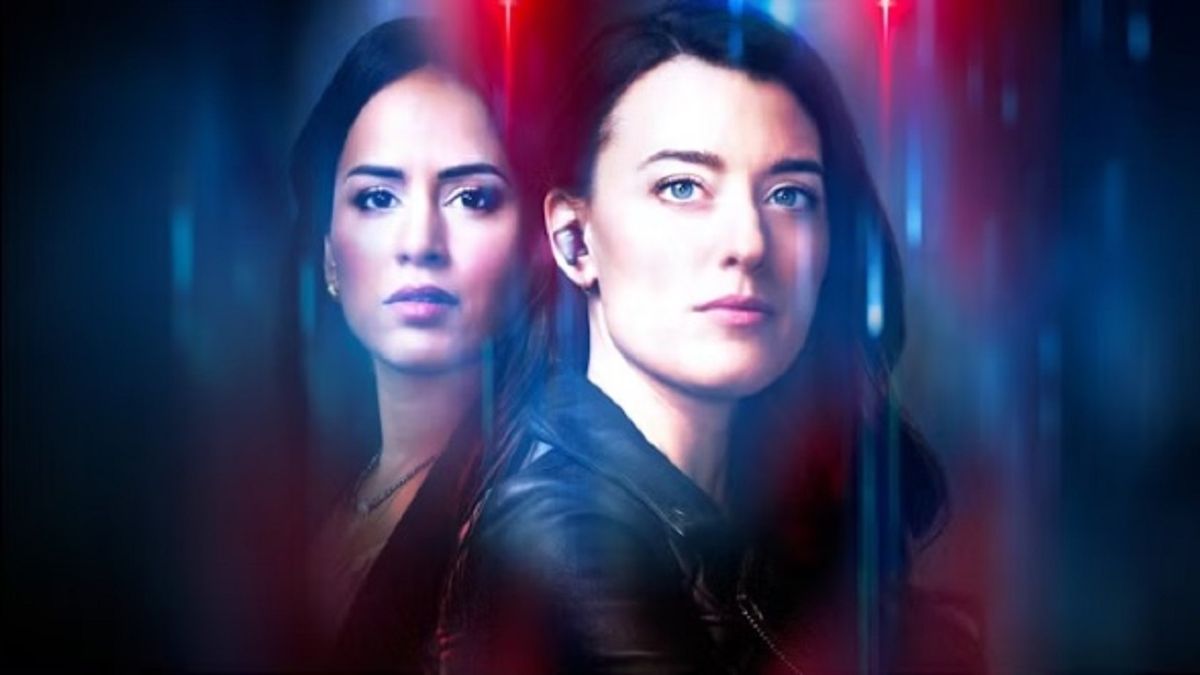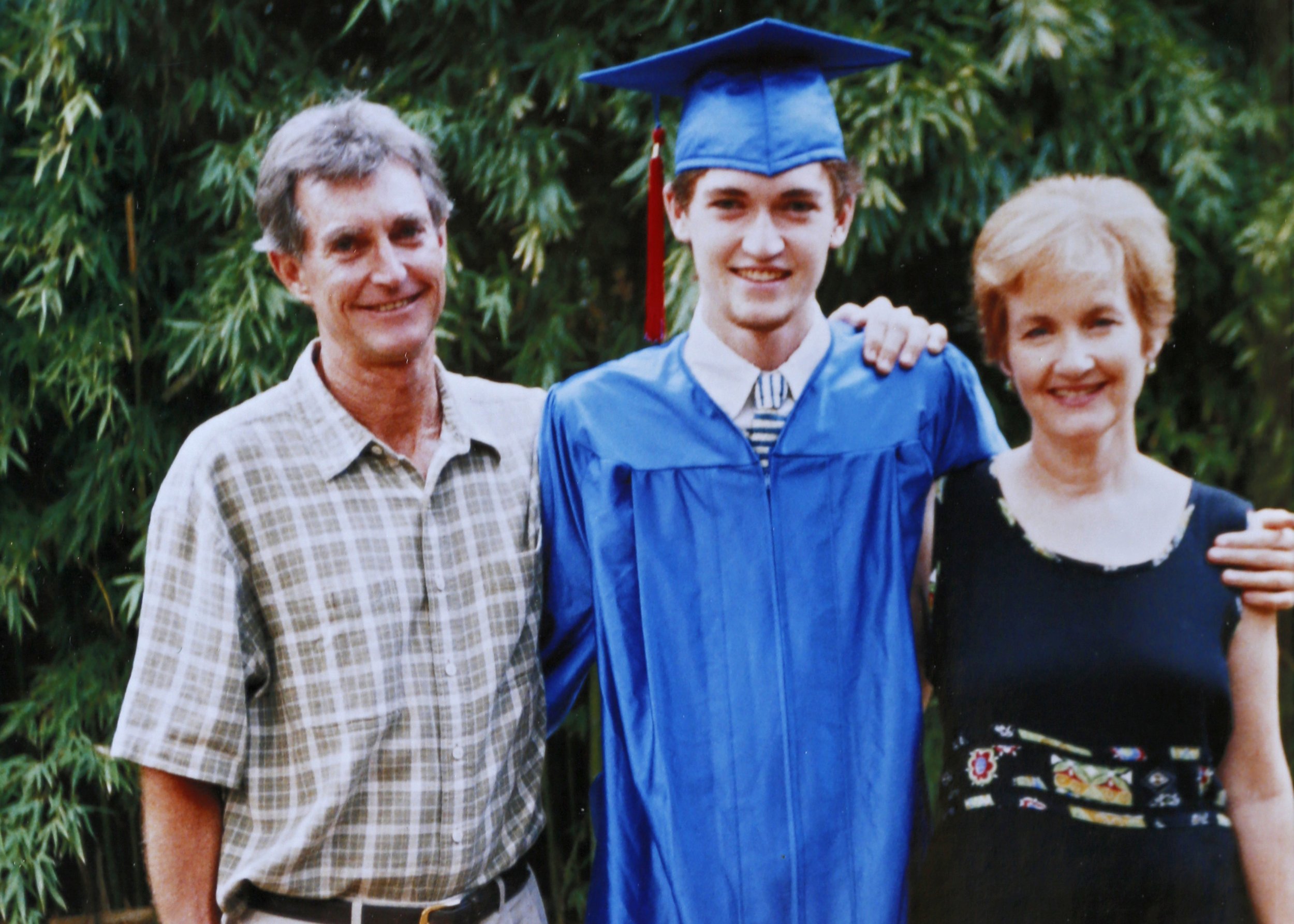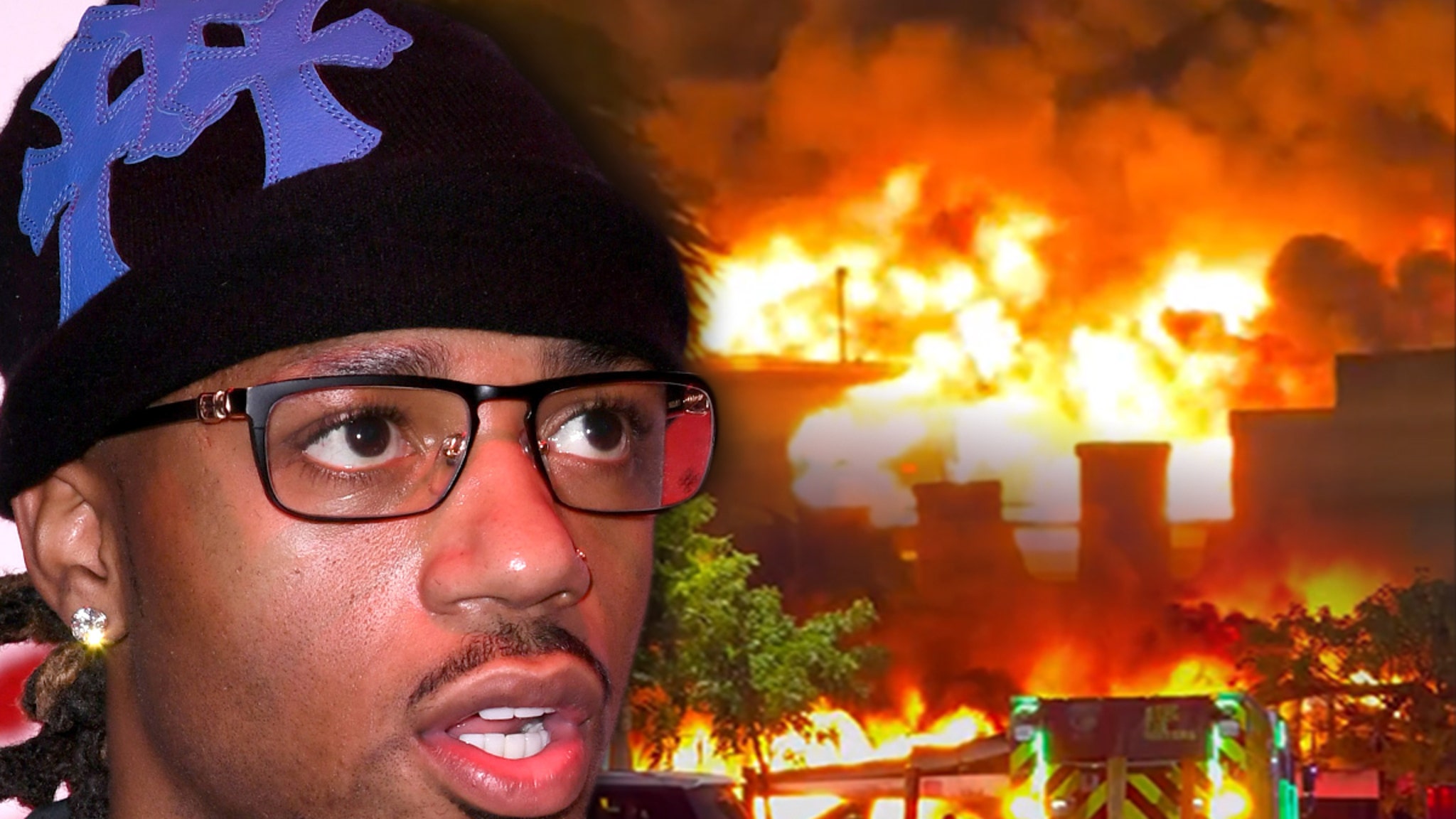A few years back, according to production notes, writer-director Kate Beecroft took a wrong turn in the middle of hardscrabble horse country and discovered Tabatha Zimiga and her teenage daughter, Porshia, along with their ragtag extended family of blood relations and friends. Playing themselves in Beecroft’s East of Wall, a work that blends documentary observation and fictional storytelling “inspired by real people and certain actual circumstances,” the Zimigas hold the screen like nobody’s business. Like the seemingly godforsaken terrain, the movie takes a while to reveal its potent beauty. But it signals from the get-go, bolstered by a dynamic selection of kick-ass contemporary tracks (including two by Shaboozey), that this is no old-school West.
On her ranch outside the tiny town of Wall, South Dakota, Tabatha, a trainer with an uncanny talent for reading horses, struggles to make a living, via local auctions and TikTok, selling the last-chance animals she rescues from kill pens and the seemingly untamable ones she turns around. And then there are the kids she rescues, some of them orphaned, some neglected by their variously troubled, indifferent and impoverished parents.
East of Wall
The Bottom Line True grit.
Venue: Sundance Film Festival (Next)
Cast: Tabatha Zimiga, Porshia Zimiga, Scoot McNairy, Jennifer Ehle
Director-screenwriter: Kate Beecroft
1 hour 37 minutes
Including her own kids, Porshia and Skylar (Wyatt Mansfield), Tabatha shares her ramshackle spread with seven teenagers, as sure a sign of grit and strength as any I can imagine. There’s also a menagerie of dogs and cats, a pet snake, Tabatha’s partner, Clay (Clay Pateneaude), her 3-year-old son, Stetson (Stetson Neumann), a few grown-up hangers-on and her mother, Tracey, a moonshine-brewing straight talker who approaches every swig and every drag on a cigarette with a particular hunger. She’s played well by Jennifer Ehle but at first somewhat distractingly, the actor’s elegance taking a while to disappear behind the physicality of the weather-worn character.
Aware of her missteps and shortcomings as a parent, Tracey is trying to make up for it with Porshia, and she’s fiercely protective of Tabatha, warning her to “stop trying to think of shit you can do for ’em,” meaning the kids who flock to her. But for all her professed wisdom, Tracey isn’t above babysitting grandson Stetson by parking him in front of a Troma movie, assuring the speech-delayed toddler that the blood and gore is all fake.
It’s been a year since the death of the little boy’s father, Tabatha’s husband John, and Beecroft’s screenplay withholds the circumstances of his death for familiar storytelling reasons. However obvious this use of suspense, the dramatic payoff is a powerful lament, the awful details disclosed in a remarkable campfire scene that starts out celebratory and turns confessional, a gathering of women that goes to the matriarchal heart of the movie with its shared stories of survival — stories that vary from angry and comical to bitter and triumphant, from despairing to brutal and, in Tabatha’s case, gruesome and harrowing.
For Porshia, a champion rodeo rider, John was far more than a stepdad. As she says in voiceover, a device used to lyrical effect at various points in the movie: “He taught me how to ride. I mean really ride.” Tabatha’s silence on the subject of John’s death — “She won’t even say his fucking name” — enrages Porshia, who’s locked into a teenage unwillingness to acknowledge her mother’s pain.
Porshia’s voiceover punctuates the drama with descriptions of how the prairie flatlands and the steep hills of the Badlands were carved by ancient oceans. DP Austin Shelton’s cameras glide over the topography, or catch a lightning storm in the distance while two people talk, or soar over packs of running horses — the characters’ connection to this land is also a connection to these familiar yet mysterious creatures.
Porshia won’t admit it, but like the other kids and most everyone within miles of the ranch, she’s in awe of her mother’s knack for tuning in to a horse’s fears, sensitivities and strengths. Tabatha — whose quiet communion with an exquisite, skittish blue roan late in the drama is heart-stopping — has stopped riding since John’s death, but she continues to teach the kids. The girls ride into rodeos wearing Tabatha’s “warrior buzz” hairstyle, and at auctions they perform the horseback acrobatics she’s taught them to demonstrate how well trained the horses are. But their flair and team spirit haven’t been translating into solid returns at the sale barns they frequent.
Enter the story’s deeply felt dilemma, an offer to buy the ranch and bankroll Tabatha’s business from a low-key hotshot named Roy Waters (a superb Scoot McNairy). For someone who’s struggling to pay her tab at the grocery store, and whose recent petition to become legal guardian for 11th grader Jesse (Jesse Thorson), whose father is incarcerated, is denied because of “financial burden,” the potential appeal of such a deal is clear. But so too is the danger. With ferocious strength and focus, Tabatha is determined to build a life on the huge spread of land that once belonged to her husband’s family.
Arriving from Fort Worth at the wheel of the world’s longest trailer, Roy is promptly impressed by Tabatha and her crew. As the screenplay divulges in a few terse comments and telling silences, he has not just money to burn but emotional wounds to heal and a need for redemption. During the tentative trial period he and Tabatha embark upon, he definitely helps her up her earnings, and also does his best to ingratiate himself with Porshia, showcasing her skills at auctions and buying her gifts. Tabatha’s wariness mounts, and Tracey, in her laidback way, is on high alert, culminating in a strong scene between Ehle and McNairy.
Tapping into universal tensions with a charged specificity, East of Wall is vibrant with its sense of place and, beneath its hard-knocks surface, a poetry of astonishment and yearning, emotions intertwined in the subtle but stirring score by Lukas Frank and Daniel Meyer-O’Keeffe. The place Beecroft stumbled upon is fueled by girl power, and the story she and her collaborators have created is wise and messy, keenly aware of the dark places at the margins as it burns bright with life.
Full credits
Venue: Sundance Film Festival (Next)
Production companies: Station Road, Stetson’s Kingdom in association with Picture Movers, Stadium, Working Barn Productions, Low Road Films, Tanbark Pictures
Cast: Tabatha Zimiga, Porshia Zimiga, Scoot McNairy, Jennifer Ehle, Jesse Thorson, Chancey Ryder Witt, Clay Pateneaude, Leanna Shumpert, Brynn Darling, Wyatt Mansfield, Stetson Neumann, Traden Lockwood, Don “Gummer” Garnier, Renee Mousseaux, Brett Fly Sr., Ryan Caraway, Haley Strode, Lori Ann Reed, Amy Shedeed, Angela Heinze, Tracey Osmotherly, Janis Schell, Cheryl Walker, Lisa Anderson-Pelton, Patsy R. Tines, Jace Thompson, Jason Mathis, Parker Rain Hill, Ryan M. Hall, Bradley Otte
Director-screenwriter: Kate Beecroft
Producers: Lila Yacoub, Kate Beecroft, Melanie Ramsayer, Shannon Moss
Executive producers: Scott Frank, Al Engemann, Naia Cucukov, Peter Richards, Randy Wooten, Caitlin Gold, Ryan Hawkins, John D. Martin, Staci Hartman
Director of photography: Austin Shelton
Costume designer: Christina Blackaller
Editor: Jennifer Vecchiarello
Music: Lukas Frank, Daniel Meyer-O’Keeffe
Casting: Wittney Horton
Music supervisors: Simon Astall, Sadie Matthew
Sound designer: Sergio Diaz
Head animal wrangler: Traden Lockwood
Art director: Theo Cohn
Worldwide sales: UTA Independent Film Group
1 hour 37 minutes
THR Newsletters
Sign up for THR news straight to your inbox every day
Subscribe Sign Up




















 English (US) ·
English (US) ·